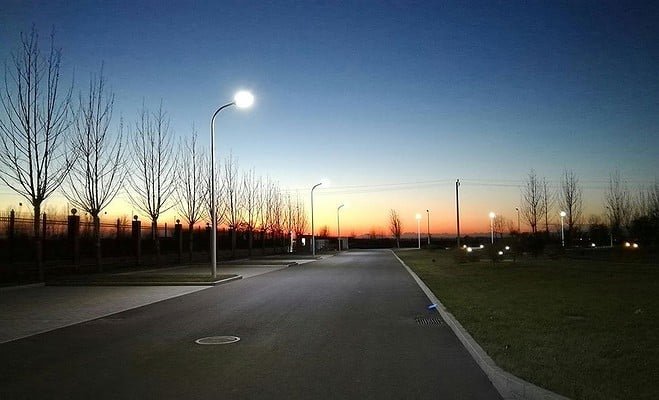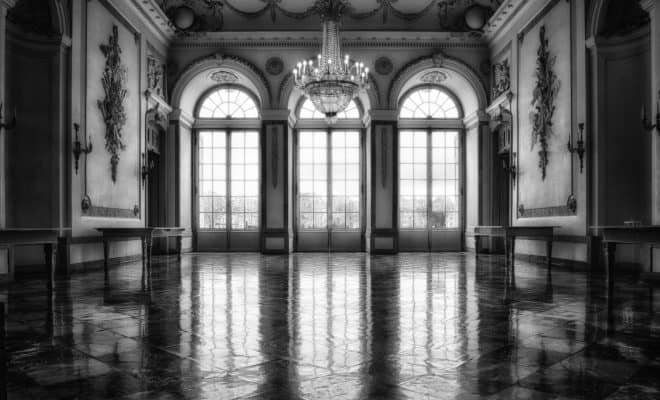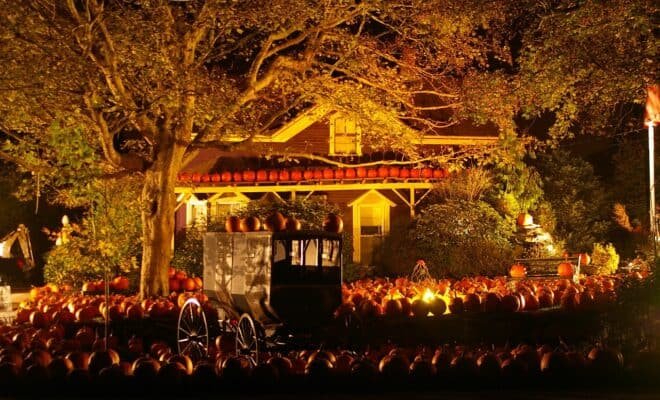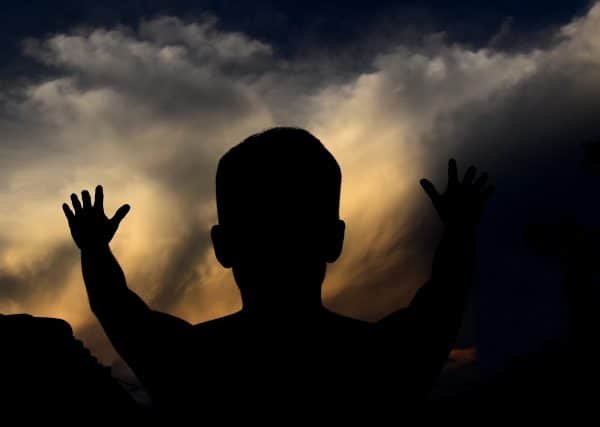All Things Abandoned

Sometimes in the car, or in the moments before falling asleep, a recollection of him appeared. Maybe it was because I saw someone in his liking. A tall, thin stranger with his head down and hands in his pockets. Or, the radio played Green Day’s “When I Come Around.” So much time had passed. The nostalgia brewed the memories, and they weighed on my chest. If I was in bed, I felt as if I stood on the edge of a precipice about to fall. If it happened while driving, I pull over and slow my breath. No matter what I did, I couldn’t escape the knowledge of never seeing him again, of knowing what could have been. Driving back to my hometown was sure to conjure him.
My phone on the dash stand lit up with my husband’s face. On speaker, his voice was distant, and he cut in and out.
“You were gone when I returned,” he said, sounding breathless. The pauses meant he was smoking.
“We waited, but Asher had his party.”
“I really needed to talk to him.”
“Saint Mike?”
“You know the deal. He knows what it’s like.” He’d been talking to his sponsor more. It worried me, but he was doing the right thing for Asher.
“I understand.”
“Why is this shindig so far away?”
“Somebody’s grandmother has a super-sized backyard. Asher’s entire class is supposed to be there.”
“Seems excessive for a kindergarten graduation party.”
“You know, once in a lifetime.”
“Everything is. Tell Asher I’ll be here when he gets home. I promise.”
“We heard you.”
Since my parents retired and moved, I had little incentive to return home. Urban sprawl had transformed Oakwoods from a suburban paradise with a quaint downtown during my absence. During my absence, it had become an outlet mall destination hit hard by the internet but hanging on. Few forests and farms remained. An oversized grocery store replaced the movie theater; the local diner was a pizza franchise. The real attraction was the sprawling subdivisions. I felt the urge to turn as we passed Eden Gardens but resisted. Oakwoods was a place to move to and stretch a good paycheck thin, as I often overheard during my childhood. You gave up some things to have more, but it was never enough.
My son’s party was in a McMansion development that bordered where we, as bored teenagers, would wander. After I dropped him off, I pulled over and peered into the weeded border of the subdivision. The signless posts that once announced the luxurious resort were the only evidence left. Then, the feeling hit. The ache within me blossomed, and I felt as if I was falling in place. I waited for the feeling to pass.
*
I was the new girl in second grade, he was the sick kid who had missed too many days. Our names had haunted us and the alphabet placed us in the same homeroom. He was Andrea, and I was Ryann. Weeks into the new school year, a trio of girls proclaimed him a girl and me a boy because of our names. He pushed the closest one away from me.
For years, I sat behind him in class. He grew thinner, taller, and he let his hair grow so that it covered his eyes and most of his face. By eighth grade, no one dared to look at him without being told off. When I saw him in the hallways, I averted my gaze to the floor.
Freshman year, he told the teachers to call him “Drey,” which I understood was much easier to live with. Every first day of school, the teacher stumbled over our names until they familiarized themselves with who we were. Drey positioned himself in the hallway outside of the art department with his friends. Sometimes, he eyed me as I passed him on my way to commercial design. By then, I had a bad bout of acne and hid with overgrown bangs. But sometimes, I returned a pressed smile.
When he turned eighteen junior year, he was the first to get a tattoo. A bracelet of flames encircled his wrist, so that he’d “never have a desk job,” I overheard him tell his friends by their wall.
Drey surprised me when I won that year’s poster contest. “Cool drawing,” he said, as I walked by him. My mouth hung open, but I said nothing. He smiled.
In the spring semester of senior year, we finally spoke after growing up in tandem. We had a final mandatory health class with a group project about the family. He caught up to me after class and asked me to be his health class wife. He caught me so off-guard, I laughed and said “sure.” I ran and told Kira.
“You think he’s cute?”
“I believe that the people who look different are more likely to be kinder, and who we want to be.”
“If you say so.”
For two weeks, Drey and I sat together, worked on budgets, and raised an imaginary child. The night before our final exam, I went to his house. His home appeared even more normal than mine. He was an only child, and his mother hugged me after I stuck out my hand and introduced myself. All the rooms but Drey’s had a pristine, magazine-worthy design. Posters covered his room, except for a framed picture of the lunar landing.
“I used to want to be an astronaut.” He shrugged.
“Why couldn’t you be?”
“Not a screw-up like me,” he uttered and flopped on the bed.
I wanted to encourage him, but I was always at a loss for words. Instead, I handed him my review packet.
“This should be easy.” He set the papers aside.
“What are your plans after June? That’s the question we’ve all been getting.” He propped his head on an elbow.
From my bag, I pulled out a postcard to the city college. He smiled and studied it. “You try to avoid talking at all costs, don’t you?”
“I don’t know what I’m going to do,” I said.
“You and me both,” he said. Sitting up, he took a cigar box from the shelf and pulled out a small glass pipe.
“Feel like going for a drive?”
My face warmed. When he put out his hand, I gave him my keys. He laughed and drove my car to the desolate resort. With a thudding heart, I followed him past the crumbling main office and up the rusted staircase to the motel’s flat concrete roof and walked to the edge.
“Welcome to my kingdom,” he said, arms extended. He pointed out the overgrown tennis courts and the empty swimming pool where he skateboarded with friends. He sat and propped his feet on the ledge. I did the same. The moon was out, and a cool breeze washed over the trees. I shivered. Drey took off his sweatshirt and handed it to me. It smelled of rose detergent. I returned his smile.
In school, he nodded at me from his wall. June was a blur of finals, prom, and graduation. My brother’s friend attended the dance with me. Drey went with his ex-girlfriend. We said hello to each other, and he stole a couple of glances at me. In the limbo week before graduation, we cleaned out our lockers and classrooms. He and I helped organize the art room closet.
“I wanted to ask you to prom, but Mia had asked me before we broke up and made me promise. I hate to make anyone sad.”
“It’s OK.”
“No, it wasn’t.” He grabbed me around the waist, but I turned away.
“Did you have fun?”
“Nope,” he said and punched my shoulder.
Through word of mouth on graduation night, most of us gathered by an oversized fire pit at the class president’s house. There was a collective buzz with high school no longer a part of us. Drey approached me from behind and embraced me. I leaned into him and smiled as our classmates made the connection. That summer, we were together every night. In the fall, I started college in the city. Drey visited me on the weekends, and we’d go to off-campus parties together. There, he’d hang his arm around me and hold me close to his lanky frame. There was much beer spilled, loud conversations, singing to Green Day, and laughing at things I don’t remember anymore. I just remember life feeling lived.
At a party, Drey mysteriously disappeared and reappeared at the end, like a sleepwalker. He leaned into me against the wall and kissed my temple. “I love you,” he said and placed his head atop my shoulder. My surprise melted. Something was wrong. His friend helped me take him to my apartment and put him in bed. After his friend left, I crawled in next to him and placed my hand on his chest, rising and falling. When I awoke, he had his arm draped over me.
“What happened to you?”
“I did something I shouldn’t have. I’m sorry.” He wouldn’t tell me what it was, and I didn’t want him to confirm what I suspected. He stopped taking classes and stayed with me. Most days he drew. Sometimes, he came back in the morning dragging his feet as if he’d walked for miles. “Leave me alone,” he responded if I questioned.
When he ended up in the hospital one morning, I cried into his chest. “Please don’t leave me.”
“I didn’t mean it,” he said and pressed me to him.
He began tattooing himself to mark the milestones of recovery. “Each one’s got to mean something,” he said. We flipped through his book of designs. “Which will you get?” I pointed to a flaming sun. “Typical,” he responded. He traced the outline on my thigh and said to come by his friend’s shop in a few days. I envisioned his mark on me forever. When the time came, Drey was nowhere. Days later, he showed up at my apartment while I was getting ready and told me he had to leave everything to stay clean.
“I need to start over,” he said.
“Please let me come with you. Nothing is tying me here either.”
Drey shook his head. “I can’t drag you down too.” He had mapped out a different life out west. There were people who could help him. He released me first when we said goodbye. Weeks passed with no news. Then his mother called me. He was never coming home.
*
When someone leaves, I imagined them living somewhere else. I couldn’t attend the memorial. My stomach churned at the thought of facing his family and friends. Maybe it was for the better. That by not saying goodbye, I could pretend he was still living his life.
I set the car into Drive and picked up Asher from his party. He was one of the last children waiting, clutching his goody bag. When I approached him, he hugged me as if I had arrived from somewhere far away. He relaxed his grasp and glanced as if to confirm my presence, then resumed the hug. He strapped himself into his seat, and I maneuvered us to the highway, past the new construction that obliterated my old haunts. The ache remained. Once I joined the flow of traffic heading northward, I pressed down on the accelerator until the town diminished in the rear view mirror and faded into the rays of the setting sun.







